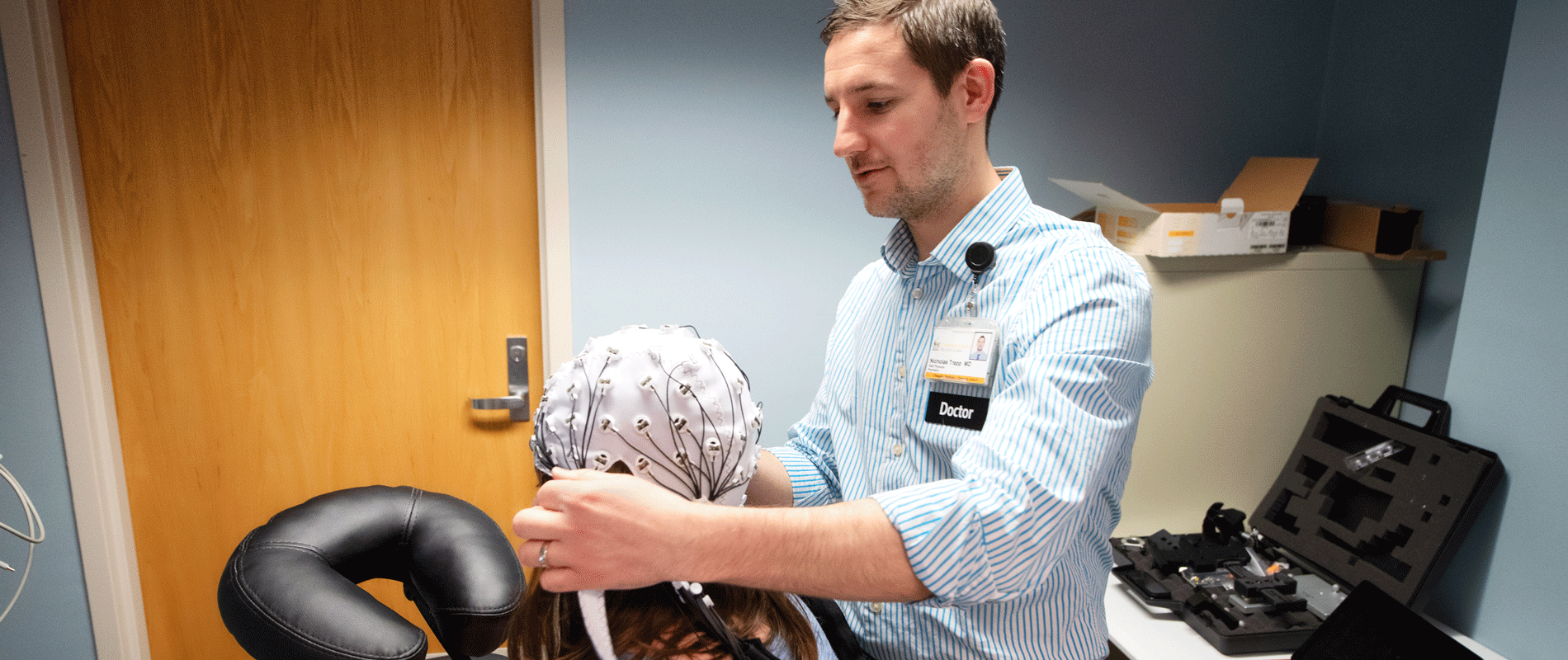
 |
The Trapp lab is focused on the application and optimization of neuromodulation therapies for the treatment of neuropsychiatric conditions. Dr. Trapp has focused on using innovative methods of applying brain stimulation treatment to address difficult-to-treat conditions, employing the use of structural MRI, resting-state functional connectivity MRI, and neuronavigation. In his residency, Trapp and a co-resident conducted a clinical trial using functional connectivity MRI (fcMRI) to guide repetitive transcranial magnetic stimulation (rTMS) therapy for the treatment of depression in patients following traumatic brain injury. We believe that brain stimulation holds tremendous promise as a novel treatment approach to illnesses that have failed to respond to traditional pharmacologic and psychotherapeutic efforts.
We continue to work on research endeavors aimed at improving the current applications of neuromodulation, better understanding the physiologic effects of the procedure, and exploring the potential for these therapies in new patient populations. We are currently engaged in research focused on:
- Better understanding the physiologic effects of rTMS in the human brain (using electrocorticography)
- Research focused on discovering biomarkers of rTMS treatment response in patients receiving clinical treatment for major depressive disorder (using heart rate variability and electroencephalography)
- Research focused on applying these therapies in clinical trials for various conditions (we are leading ongoing clinical trials with applications for schizophrenia, bipolar disorder, and autism spectrum disorder).